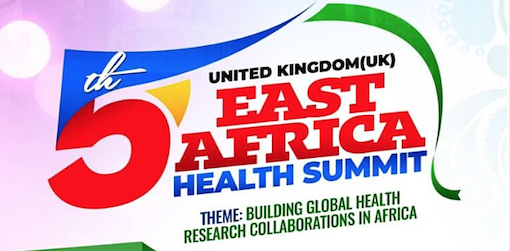
Partnering with British Medical Journal and British Medical Association , This 5TH UK EAST AFRICA HEALTH SUMMIT 2020 is one day event which will provide a multi-channel communication platform that brings together Government, Medical Researchers , Pharma industry , Global health Enthusiasts , Country representatives of Ministries of Health , Medical Students , Business, Academia, Policy and Civil society for an exciting day of expert panel discussions, interactive working groups and participant-led workshops.!
It will be impossible to achieve national and international goals – including the Sustainable Development Goals (SDGs) – without greater and more effective investment in health systems and medical Research . While more resources are needed, African governments are also looking for ways of doing more with existing resources. They are seeking innovative ways of harnessing and focusing the energies of global health communities, non-governmental organizations (NGOs) and the private sector.
The East African Community faces many health challenges including global security linked dangerous pathogens like Ebola, and other epidemics like malaria making the health system strengthening agenda clear and concrete. Ensuring that the East African Community has the capacity to respond to current health issues and identify future challenges are a priority.
The 5th UK- East African Healthcare Summit 2020 aims to bring together large delegations of government officials, policy makers, research and development institutions, senior hospital directors & CEOs and healthcare professionals to United Kingdom to network with international healthcare experts, investors and solution providers.
• Global health has increased the number of high-income country (HIC) investigators conducting research in low- and middle-income countries (LMICs).
• Partnerships with local collaborators rather than extractive research are needed.
• LMICs have to take an active role in leading or directing these research collaborations in order to maximize the benefits and minimize the harm of inherently inequitable relationships.
• This Annual Global Health Summit will explore lessons from effective and equitable relationships that exist between African countries and HICs.
Benefits
1. Setting Local Research Agenda : Historically, HIC researchers control funding and therefore dictate research agendas in Africa. Africans need to set their own research priorities. Continued dialogue between stakeholders such as local research institutions and their ministries of health will translate local research into action. Regular communication with regional and international health policymakers is needed to understand global health issues and priorities
2. Long Term Collaboration: Longterm partnerships facilitate equitable research collaborations. Frequently, personal relationships between individuals can lead to formal partnerships in Research hence a key potential outcome of the summit.
3. Supporting Local Authorship and Dissemination of Results: The goal of any research collaboration is to produce high-quality research in order to advance scientific knowledge, clinical care, and to influence evidence-based research and public policy. Publishing ensures transparency, demonstrates accountability for financial support, and allows for establishing metrics of productivity. Working with British Medical Journal , we hope to support Local researchers with skills needed for publications from Africa

